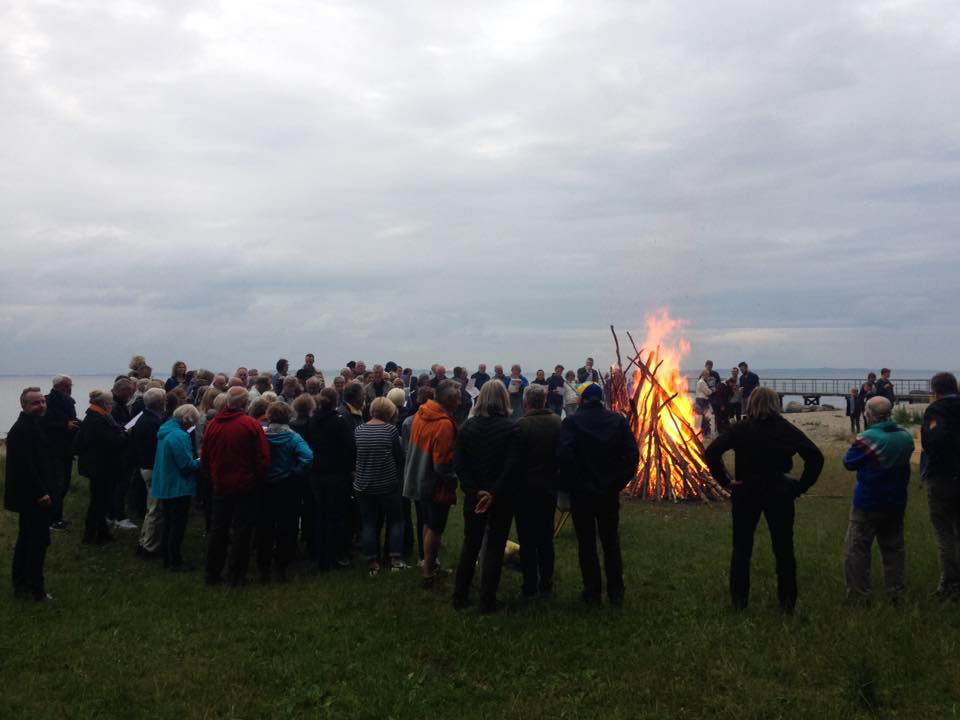Fastalavn
I am text block. Click edit button to change this text. Lorem ipsum dolor sit amet, consectetur adipiscing elit. Ut elit tellus, luctus nec ullamcorper mattis, pulvinar dapibus leo.
Store Bededag (Great Prayer Day)
is a holiday which lays on the fourth Friday after Easter.
It’s an old tradition to eat “hveder” (a bun) warm from the oven, the evening before Store Bededag – this because bakeries were closed on holidays and people bought bread for the following day.
Store Bededag is a collection of minor Christian holy days consolidated into one day by 1686 by King Christian V.
Before the Reformation in 1536 the Danes celebrated lots of different saints and kings, some of the praying days survived the reformation. But in the 16th century it was believed that the Danes had lost their respect for the praying days. And instead of praying they spend the days drinking and gambling.
To restore the respect for the praying days they were gathered into one big more significant one.
And the evening before Store Bededag, the church bells rang at 6 pm to make sure that the tavern’s closed – and to increase the chances of Danes being sober and ready to pray the following day.
Blå Mandag
I am text block. Click edit button to change this text. Lorem ipsum dolor sit amet, consectetur adipiscing elit. Ut elit tellus, luctus nec ullamcorper mattis, pulvinar dapibus leo.
Lys i vinduerne (Candless in the windows)
On May 4th…..
Pinse
I am text block. Click edit button to change this text. Lorem ipsum dolor sit amet, consectetur adipiscing elit. Ut elit tellus, luctus nec ullamcorper mattis, pulvinar dapibus leo.
Grundlovsdag (Constitution Day)
June the 5th is “Grundlovsdag” and commemorates the anniversary of the signing of the Danish constitution of 1849 by Frederik the VII. It is the closest thing Denmark has to a national day.
Basically the king gave away most of his power to the people, and Denmark became a democracy – and a constitutional monarchy.
Since 1849 the constitution has been renewed in, 1915, 1920 and 1953. In the beginning only men had the right to vote. Some of the social groups who didn’t have a say were women, servants and poor people.
In 1915 though, women and servants were allowed to vote, and in 1953 the Succession to the Danish throne was changed which allowed women to become heir to the throne. (The king had three girls back then – the oldest one is the current Danish queen Margrethe).
Almost all workplaces and shops in Denmark will be closed on this particular day. And what to do if you can’t go shopping?
Sankt Hans
I am text block. Click edit button to change this text. Lorem ipsum dolor sit amet, consectetur adipiscing elit. Ut elit tellus, luctus nec ullamcorper mattis, pulvinar dapibus leo.

Studenterfest (Students)
Mortens Aften
I am text block. Click edit button to change this text. Lorem ipsum dolor sit amet, consectetur adipiscing elit. Ut elit tellus, luctus nec ullamcorper mattis, pulvinar dapibus leo.
Klip i sokken
I am text block. Click edit button to change this text. Lorem ipsum dolor sit amet, consectetur adipiscing elit. Ut elit tellus, luctus nec ullamcorper mattis, pulvinar dapibus leo.
